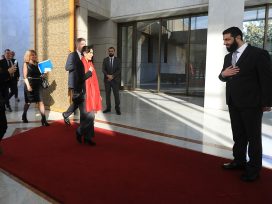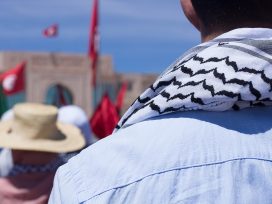Larbi Sadiki
Japanese Society for the Promotion of Science (JSPS) Scholar, non-resident Senior Fellow at the Middle East Council on Global Affairs (Doha), and Toda Peace Institute Scholar (Japan). He is the author of numerous academic articles and books, including Rethinking Arab Democratization: Elections without Democracy (OUP, 2009), and the editor of The Routledge Handbook of Middle East Politics: Interdisciplinary Inscriptions (2020). He is the Editor-in-Chief of the journal Protest and co-author, with Layla Saleh, of the new book Revolution and Democracy in Tunisia: A Century of Protestscapes (Oxford University Press, 2024).
Articles

Kais Saied’s power grab in Tunisia did not take place in a vacuum. A combination of constitutional dysfunction, a self-serving party system and festering social tensions had left the country at breaking point. Now the man many hailed as a saviour threatens the achievements of the democratic revolution of 2011.

